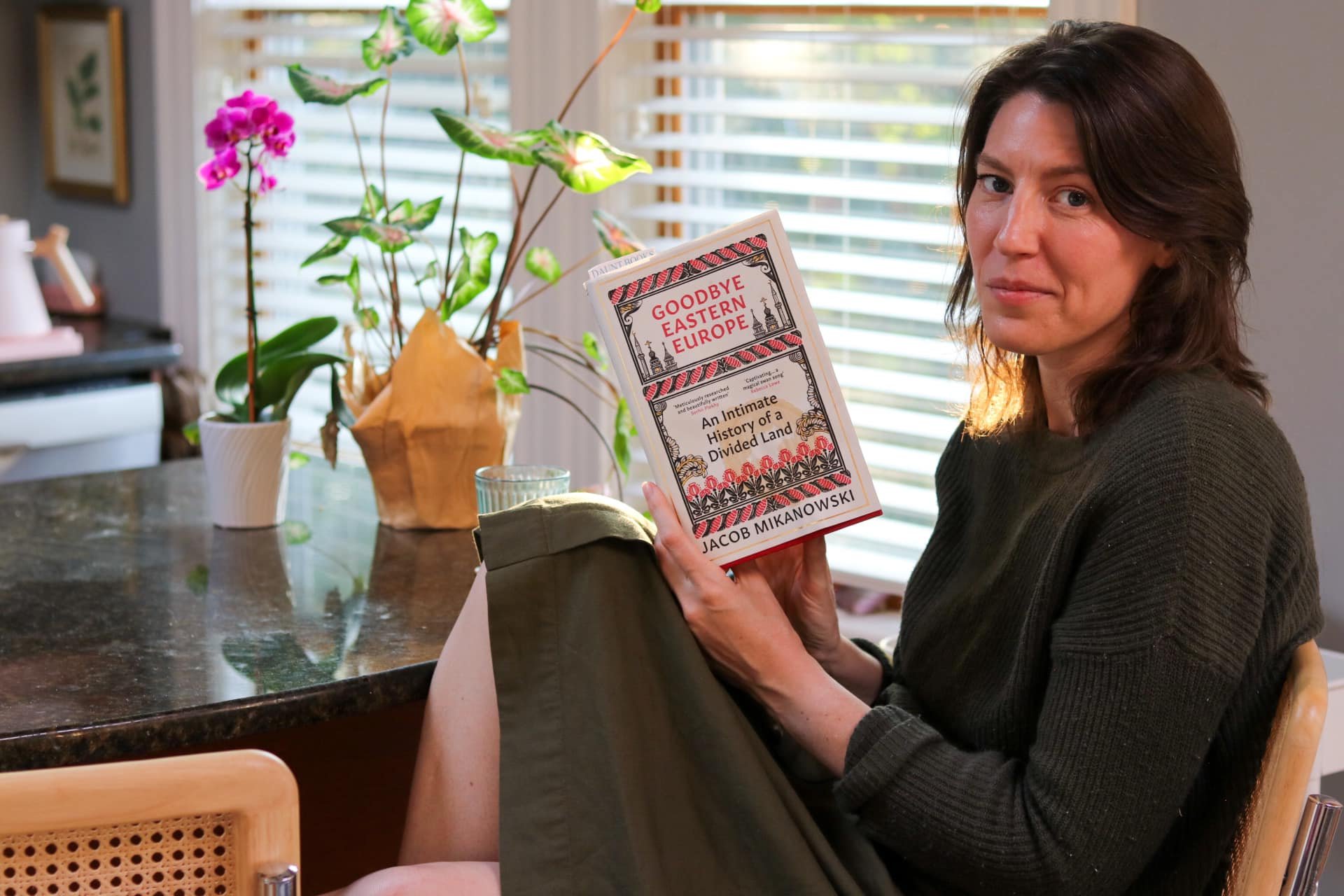Goodbye Eastern Europe Book Reflection
One great thing about HAVING TO, for medical reasons (broken ribs from a bicycle accident), sit around all of the time, is getting all the time to read, which is my favorite.
Today I finished this one: Goodbye Eastern Europe: An Intimate History of a Divided Land by Jacob Mikanowski (2023).
A couple of years ago, when we were all panicked worrying the Orange Man would be in office another 4 years, my family members and I looked into ancestry citizenship rules for the select European countries that apply to us. There are a few that allow you to apply for a passport if you have a great-grandparent from there—Poland is one and my dad has a great-grandparent from there—Cebulla is Polish, albeit with changed spelling, for “onion”.
Thanks, I think to my brother’s meticulous sleuthing on Ancestry.com, we found that the great great grandparent of ours arrived in the US in 1896. We referenced the rules chart on the Polish passport website…Poland was not a country in 1896. It did not become one (I now know, *again*) until 1919. Ahh. No passport for for my dad.
I realized I didn’t know anything about Eastern European history. Anything that helped me pass the AP European History test in 10th grade was pretty much gone from my brain. (Although I have retained a memory of reenacting the assassination of Franz Ferdinand in 1914, the event that set off a chain of events leading to WW1. My memory was that he was in a car with his wife. A quick Wikipedia search confirms—the power of the arts and embodied learning, everyone!)
When I saw this book at Daunt Books in London, a bookstore dreamily dedicated to books on travel and place, 2 weeks ago, I was drawn to it and found it was written by a Polish American who also happened to be a Cal Bear (having done his history doctoral work at UC Berkeley).
I have been plugging along and just finished it today.
I highly recommend this book as the author's writing style makes it a page-turner and he is able to find subtle humor, absurdities, and irony in just about every justified situation.
One of the more interesting and comical things I learned was about the scramble for a national language when the fervor of nationalism was starting to develop in the early 19th century. When German intellectuals started to pride themselves on their national identity and language, Czechs got some serious FOMO. They apparently also all spoke German. And were culturally more or less identical to Germans.
So what did they do? They INVENTED forged "historical" documents in the Czech language, a language spoken mainly by rural villagers, with made-up folk stories in the language about the greatness of the people of this language. The author writes, "The Czech language was thought to be spoken by stable boys and serving girls."
I think I had assumed the borders of countries would have fallen naturally based on language divides but it wasn't quite like that--some languages were adopted and nationalized to create the nationalist identity.
This book has finally helped me understand why nearly every Jewish person I've known says their ancestors are from Lithuania--Jews were pushed out of Western Europe and into Eastern Europe and most settled in what is now Poland and Lithuania.
"Following the marriage of the pagan duke Jogaila of Lithuania to the Christian princess Jadwiga of Poland in 1386, these two countries shared a single ruler. Combined, they formed an enormous realm that included the territory of most of today's Poland, Lithuania, and Belarus, as well as much of Ukraine and parts of Latvia. This vast realm was underdeveloped and undersettled. Best of all, it was a tolerant place, especially in matters of religion."
It was heartbreaking to read about all of the lost tolerance in Eastern Europe after centuries of pagans, Christians, Jews, Muslims, and Roma living all together. I can't quite wrap my head around what makes human beings ever feel that "ethnic cleansing" would be justified. And yet, there was so much ethnic cleansing all the way up until 1999 when the Kosovo war ended.
It was beyond horrifying to read about the near extermination of Polish Jews during the German occupation that began in 1939, with an estimated 3 million of the 3.3 million Jewish residents murdered. The author especially noted that while we think of these murders happening in concentration camps, many more than we realize happened face-to-face in close quarters among people who had been neighbors.
To be a descendant of European people is to reconcile hundreds of years of inhumanity in our very DNA.
This book gave me a lot of needed context to understand Hannah Arendt's Origins of Totalitarianism, which I struggled through last year. I need to revisit that now.


